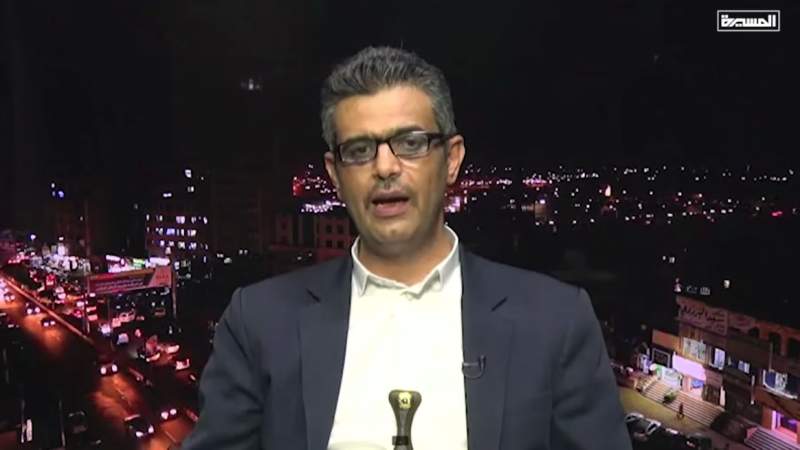Yemeni Expert: Foreign Companies Looted 75% of Yemen’s Oil and Gas Wealth; Agreements Used as a Tool to Rob the People

News – Yemen: Economic expert Salim al-Ja‘dabi has revealed that Yemen’s vast oil and gas wealth was systematically plundered by foreign companies in collusion with the former regime, depriving the Yemeni people of their rightful share for decades.
Al-Ja‘dabi explained that before the September 21 Revolution, Yemen’s economy had collapsed despite being an oil exporter since 1986 and joining the club of gas exporters in 2009. Mismanagement and dependence on foreign powers, he said, caused the Yemeni currency to lose nearly 76 times its value, reflecting the scale of corruption and looting.
He revealed that Yemen exported nearly 2.9 billion barrels of oil over past decades. Under production-sharing agreements, Yemen should have received 75% of the revenues, leaving 25% for foreign companies. Instead, the opposite occurred: companies seized 75% while Yemen retained only 25%.
Al-Ja‘dabi attributed this imbalance to manipulation of agreements under the so-called “cost oil” scheme, where inflated operating expenses were calculated in favor of foreign operators. He noted that American, French, Korean, and even companies fronting for the Zionist entity were the main beneficiaries, aided by local officials and accounting firms that provided legal cover.
He pointed to the liquefied natural gas project launched in 2009 as another example, where French, American, and South Korean companies reaped the profits. He stressed that Yemen’s actual production cost per barrel never exceeded $13, yet companies sold at global Brent prices while excluding real profits from Yemen’s treasury.
Al-Ja‘dabi highlighted that in 2010 Yemen’s official oil revenues were recorded at $3 billion, while international data confirmed exports worth about $7 billion — a gap of $4 billion annually, in addition to $3 billion in looted gas and another $3 billion in so-called fuel subsidies that never reached the people. This created an estimated annual loss of nearly $10 billion.
He also accused Saudi Arabia of playing a central role in curbing Yemen’s oil output, citing agreements over Najran, Asir, and Jizan that led to a drop in production from 500,000 barrels per day to 178,000 by 2013.
The expert described Yemen’s oil and gas sector under the former regime as suffering from “organized, systematic corruption” spanning 25 years, with empty warehouses and rented equipment left behind after foreign firms extracted Yemen’s wealth.
Al-Ja‘dabi stressed that the September 21 Revolution halted much of this plunder, but urged urgent action to safeguard remaining resources. He called for the creation of a national authority to recover stolen funds, review all oil and gas agreements, prosecute foreign companies, and hold accountable the local collaborators who facilitated the looting.
He warned that ignoring these crimes would endanger future generations, emphasizing the need for legal and diplomatic measures to restore Yemen’s sovereignty over its wealth.
Yemen, which joined oil exporters in 1986 and began exporting liquefied natural gas in 2009, has long been described as a country “rich in resources but poor in living standards.” Analysts say this paradox stems from decades of corruption, foreign control, and political subservience. The September 21 Revolution of 2014 was widely seen by supporters as a turning point in reclaiming sovereignty over Yemen’s economy.
#Yemen #Looting Yemei Wealth 25-09-24-
05:05
Gaza Ministry of Health: The toll of the Israeli aggression has risen to 70,354 martyrs, 171,030 injuries since the beginning of the aggression on Gaza
05:04
Gaza Ministry of Health: 367 martyrs, 953 wounded since the ceasefire on October 11
05:04
Gaza Ministry of Health: 6 martyrs — including 5 recovered, 15 injuries arrived at hospitals during the past 48 hours
05:04
Gaza Government Media Office: 104 cooking-gas trucks have entered the Strip out of 660 scheduled since the ceasefire, representing only 16% of actual needs
10:28
A Palestinian was killed and several others were wounded in Israeli enemy targeting of Al-Attatra roundabout in north of Gaza: Palestinian sources





